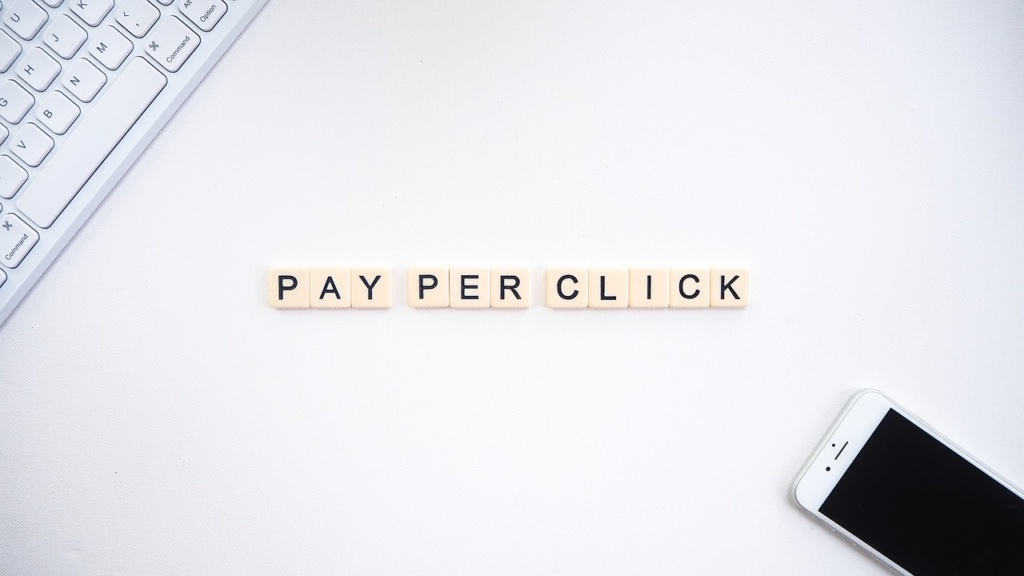Key Takeaways
- Paid search and shopping ads now drive close to a third of online retail sales, with paid search alone accounting for 28.2% of online purchases in early 2024—B2B ecommerce teams that ignore PPC are leaving serious pipeline on the table. Chief Marketer
- Treat ecommerce PPC as a pipeline engine, not just a revenue channel: integrate SDRs/BDRs into PPC lead follow-up, align messaging to keywords, and track opportunities and offline orders back to campaigns.
- The global B2B ecommerce market is projected at $32.11T in 2025 and growing at 14.5% CAGR to $36.16T by 2026—buyers are defaulting to digital, and PPC is often their first interaction with your brand. SellersCommerce
- For most B2B ecommerce brands, a healthy Google Ads ROAS target is roughly 3-5x and conversion rates around 2.5-4%; anything below that should trigger creative, landing page, or audience tests rather than just "raising bids." Billo VenueLabs
- 65% of B2B buyers use search engines as their main means of product discovery, so owning your branded and high-intent non-branded queries with PPC directly impacts how many SDR-qualified accounts you can work. Manufacturing.net
- High-performing teams close the loop: they feed PPC search term, audience, and ROAS data into outbound list building and call/email messaging so SDRs pursue the same ICP segments that already convert profitably via ads.
- Bottom line: in 2024-2025, mastering ecommerce PPC isn't optional for B2B-it's one of the fastest ways to grow qualified inbound demand that your outbound team can amplify, especially when you connect it to disciplined SDR operations.
PPC Is the Front Door to B2B Ecommerce Growth
In B2B ecommerce, PPC isn’t “just marketing” anymore—it’s where buyers first meet your catalog, compare you to alternatives, and decide whether you’re worth a quote request or a credit card. The market is already enormous at $32.11T in 2025 and projected to reach $36.16T in 2026, growing at 14.5% annually. If your ads aren’t built to capture and convert that intent, you’re effectively letting competitors set the terms of discovery.
This shift is even more pronounced in the US, where digital channels are projected to drive 56% of B2B revenue by 2025 (up from 32% in 2020). When buyers default to self-serve research and ordering, search results become your shelf space—and PPC determines how much of that shelf you own on the highest-intent queries.
The trap we see is treating ecommerce PPC services like a siloed “ROAS channel” while the sales team operates separately. For B2B, every click can represent an account with repeat purchasing, expansion opportunities, and multi-year value. The right goal isn’t merely more transactions—it’s more qualified accounts entering a measurable pipeline you can work.
Why PPC Matters More Than Ever for B2B Buyer Behavior
Search is the most consistent way B2B buyers discover products, and the numbers back it up: 65% of global B2B buyers use search engines as their primary product discovery method. That means PPC isn’t just a conversion lever—it’s a shortlist lever, because the brands that show up first get evaluated first.
On the ecommerce side, paid search has become a dominant driver of purchases, accounting for 28.2% of online retail sales from January through April 2024. Even if your company sells “boring” industrial parts or specialized components, the buyer’s journey often looks the same: search a spec, compare options, validate credibility, and act.
When B2B businesses launch ecommerce, they report an average revenue lift of 41%, with another 42% growth expected through digital channels. The practical takeaway is simple: your PPC strategy needs to be built like a revenue system, not a collection of ads. That’s where aligning marketing, operations, and sales execution becomes the differentiator.
Build PPC Strategy Around Sales Motion, Not Platform Defaults
Most B2B catalogs include multiple buying paths: self-serve replenishment, researched online purchase, and quote-driven deals that require sales involvement. If you combine those into one campaign, bidding algorithms will over-optimize for the easiest conversions and under-invest in the SKUs and accounts that produce real lifetime value. A scalable approach starts by segmenting spend by deal size and sales motion, then matching each segment to the right landing experience.
We recommend thinking in terms of intent and commitment: transactional terms (SKU, part number, exact product) should map to purchase-ready pages, while solution/spec terms should map to “request a quote,” “talk to an engineer,” or “configure and price” experiences. This is also where your sales agency choices matter: when a buyer raises their hand on a high-ticket product, speed-to-lead and qualification quality are as important as click efficiency.
In practice, the best-performing teams treat PPC as the top-of-funnel for an integrated SDR motion. Whether you run with an in-house team or a sales development agency, the handoff must be clear: who calls, how fast, and what context the rep receives (keyword, ad group, landing page, and product viewed). Without that, even strong campaigns turn into expensive traffic with weak follow-through.
Implementation: Tracking, KPIs, and the Sales Handoff That Makes PPC Profitable
Before scaling budget, audit your funnel for visibility and ownership. Map every conversion type—purchase, RFQ, form fill, chat, call—to what happens next, and make sure the CRM records the campaign and keyword that drove the action. If your reps can’t see that context, you can’t diagnose performance, and your follow-up will feel generic (which lowers connect rates and win rates).
Next, define B2B-specific KPIs that tie to pipeline, not just ad spend. Conversion rate and ROAS matter, but they need to be paired with cost per qualified lead, cost per opportunity, meeting rate, and opportunity creation by campaign type. This is where sales outsourcing can be a force multiplier, because an outsourced sales team can run consistent follow-up and reporting cadences without pulling bandwidth from your AEs.
Finally, close the loop with offline conversion tracking, especially if you sell through POs, phone orders, or customer portals. Use call tracking numbers on PPC landing pages and regularly upload offline outcomes (opportunities won, revenue, repeat orders) back into Google and Microsoft Ads. Once your tracking reflects real purchases and real accounts, automated bidding stops optimizing for cheap leads and starts optimizing for buyers who actually buy.
If your sales team can’t see the keyword that created the lead, you don’t have a PPC funnel—you have a reporting gap.
Benchmarks and Guardrails: What “Good” Looks Like in 2024–2025
Benchmarks are useful only if you apply them to the right segment. Across ecommerce, Google Ads conversion rates often sit around 2.8–3.1%, with many sites averaging 2.5–3.5% overall. B2B can beat those numbers when queries are specific and intent is high, but it can also underperform if the landing page doesn’t match technical needs or purchasing constraints.
On profitability, a strong baseline for evaluation is the median Google Ads ROAS of 3.31x (April 2025 benchmark data). In B2B ecommerce, we typically see healthy non-brand search campaigns live in the 3–5x ROAS range when margins and average order value support it. The key is to set ROAS targets by campaign purpose—brand defense and retargeting should behave very differently than prospecting.
Use this table as a practical starting point, then tune targets to your margin, repeat rate, and sales motion. If performance misses these ranges, don’t default to “raise bids”; test creative, landing pages, feed quality, and qualification workflows first. When your targets are clear, your marketing team and SDR agency (or in-house SDRs) can make budget decisions with confidence.
| Metric | Practical B2B Ecommerce Target Range |
|---|---|
| Paid search conversion rate | 2.8–3.1% baseline; aim for 3%+ on high-intent queries |
| ROAS (non-brand search) | 3–5x when margins/LTV support it |
| ROAS (brand + retargeting) | 5–10x+ with strong messaging and clean audiences |
| Prospecting success metric | New qualified accounts, meetings, and opportunity creation (not last-click ROAS alone) |
Common Mistakes That Quietly Kill B2B PPC Performance
The most common mistake is optimizing to the easiest measurable outcome instead of the best business outcome. If you only measure online checkouts, you’ll under-invest in quote requests and high-AOV products that require a sales conversation. The fix is segmentation: separate campaigns for self-serve SKUs versus quote-only lines, and track each with the right success metric.
Another frequent issue is “uncurated intent,” where broad targeting and weak negatives bring in the wrong traffic. B2B queries often include specs, standards, model numbers, and industry jargon; if your account structure can’t distinguish those from research-only terms, you’ll pay for clicks that never had purchase intent. Tight keyword strategy, disciplined negatives, and landing pages aligned to the search term are still the fastest ways to lift efficiency.
The last mistake is slow or generic follow-up. If someone submits an RFQ and receives a templated response a day later, you’re losing to the vendor that called in ten minutes and referenced the exact product. This is where cold calling services and a trained cold calling team can materially increase win rates—especially when the SDR’s first line reflects the buyer’s search intent and page visited.
Optimization Tactics: Turn Campaign Data Into Compounding Gains
In B2B Shopping and Performance Max, your product feed is not a technical checkbox—it’s a competitive weapon. Strong feeds use enriched titles (use cases, specs, industry terms), consistent attributes, and custom labels that reflect margin, strategic product lines, and AOV tiers. When your feed is structured for decision-making, the platform can match you to better queries and filter you out of irrelevant ones.
Next, use PPC insights to sharpen outbound targeting. Pull your best-performing search terms, audiences, and geos, then feed that into list building services so outbound focuses on the same ICP segments that already convert profitably. This is where our approach at SalesHive becomes powerful: we connect the dots between high-intent inbound and outbound execution through list building, cold email agency workflows, and LinkedIn outreach services that mirror the language buyers already used in search.
Finally, run your optimization like a disciplined experiment cycle. Make one controlled change at a time—new landing page for quote traffic, new ad copy for spec terms, new audience exclusion for low-quality placements—and evaluate impact on both platform metrics and downstream sales metrics. If you can’t trace improvements to meetings and opportunities, the “optimization” is just activity.
Next Steps: Make PPC a Pipeline Engine, Not a Traffic Channel
The future of B2B ecommerce belongs to teams that operationalize speed, relevance, and measurement across channels. With digital projected to account for 56% of US B2B revenue by 2025, the winners won’t be the brands with the most clicks—they’ll be the brands that connect clicks to conversations and conversations to revenue. Your PPC program should be designed to create qualified accounts your sales team can reliably convert.
That means building a dedicated SDR cadence for PPC leads: same-day calls, short high-touch sequences, and messaging that references the product or pain implied by the keyword. If you’re evaluating a B2B sales agency, prioritize operational rigor over promises—clean CRM fields, consistent dispositions, and reporting that ties campaigns to meetings and opportunities. This is also the difference between “lead gen” and true pay per appointment lead generation you can forecast.
If you want a simple plan for the next quarter, start with three actions: fix attribution and offline conversion tracking, segment campaigns by sales motion, and align follow-up with an SDR agency or outsourced sales team that can execute quickly. When PPC and outbound work from the same playbook, you stop guessing where growth comes from—and you start scaling what’s already proven to convert.
Sources
📊 Key Statistics
Action Items
Audit your current PPC funnel for sales visibility and handoff
Map each ecommerce PPC conversion type (purchase, form, RFQ, chat, call) to what happens next and who owns it. If SDRs or AEs aren't seeing the campaign and keyword that drove the contact, fix your integrations and fields before you scale spend.
Define B2B-specific PPC KPIs tied to pipeline, not just ad spend
Set target ranges for conversion rate, cost per qualified lead, ROAS, and cost per opportunity by campaign type. Review them alongside SDR metrics like meetings booked and opportunity creation to decide where to increase or cut budget.
Segment campaigns by AOV and sales motion
Split your account into self-serve ecommerce SKUs vs. high-ticket or configure-to-order SKUs that require sales involvement. Use different bidding strategies, ad copy, and landing pages so each segment is optimized for its real buying process.
Feed PPC search term and audience insights into list building
Take your best-performing search terms, placements, and in-market audiences and hand them to whoever builds prospect lists. Use those signals to refine industries, job titles, and keywords in your outbound data pulls.
Implement offline conversion tracking for phone and portal orders
Use call tracking numbers on PPC landing pages and set up periodic uploads of offline deals (phone orders, PO-based sales) back into Google and Microsoft Ads. This lets bidding algorithms optimize toward accounts that actually buy, not just click.
Build a dedicated SDR cadence for PPC-sourced leads
Create a shortened, high-touch sequence with immediate same-day calls and tailored messaging based on the buyer's ad and page. Train SDRs to reference the product or pain point implied by the keyword in their opening line.
Partner with SalesHive
SalesHive plugs directly into your PPC and ecommerce stack. Our list building team can pull lookalike accounts based on the industries, company sizes, and regions that convert best from your ads, then feed those into multichannel outreach-cold calling, email, and LinkedIn-so you’re not just waiting for inbound. Our SDRs use AI‑powered personalization tools like eMod to reference the products, pain points, and search themes that drove the initial click, making follow‑up feel like a continuation of the buyer’s journey rather than a random interruption.
Since 2016, SalesHive has booked 100,000+ meetings for more than 1,500 B2B clients using this kind of tight integration between outbound and digital demand gen. You can choose US‑based or Philippines‑based SDR teams, avoid long‑term contracts with flexible, month‑to‑month engagement, and get risk‑free onboarding where we build your playbook before you commit. If you want ecommerce PPC dollars to translate into predictable B2B pipeline instead of just clicks and carts, SalesHive is built for exactly that.






